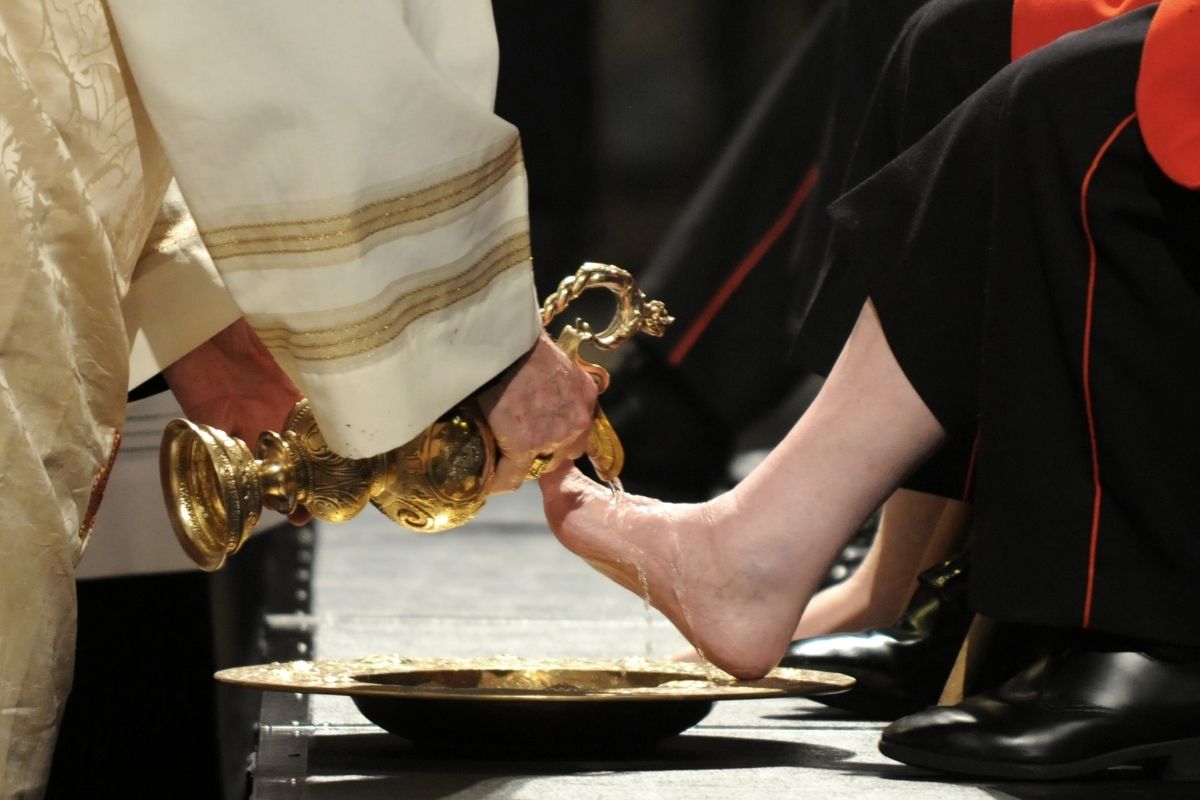
The celebration of 40 days of Lent—beginning on Ash Wednesday and culminating in the events of the Holy or Passion Week—has been around since the fourth century. Of course, various events are commemorated (or not!) depending on the church tradition we belong to.
What does Maundy mean?
Maundy Thursday is one such ancient and beautiful tradition of the Holy Week. Whether we celebrate it or not, we can embrace the marvel and might of the event it signifies.
The word Maundy comes from the Latin mandatum (from which we get the English word mandate). So, Maundy Thursday refers to the day of the commandment.
This refers to the commandment that Jesus charged his disciples with during the Last Supper: “Love one another. As I have loved you, so you must love one another. By this everyone will know that you are my disciples, if you love one another” (John 13:34-35).
The Last Supper
Jesus’ farewell dinner has over the centuries given rise to quite different traditions worldwide. Various terms are used—including The Lord’s Table, Communion, Eucharist (= giving thanks), and Mass (= meal). This commemorative meal has become the most significant observance in all (or most) Christian congregations.
The Lord’s Supper is a potent symbolic guarantee that every part of life can be sanctified by Jesus, and that His presence is assured in the very nitty gritty of ordinary life. The two perplexed disciples at Emmaus were stunned to recognize that the resurrected Jesus had been with them all the while. This happened when Jesus took the bread, broke and blessed it, and gave it to them (Luke 24:30-31). (Interestingly, the same four verbs are mentioned in Luke 9:16 and 22:19.)
The Farewell Dinner in John
You may have noticed that, unlike the other three Gospels, John does not narrate the institution of the Last Supper. Yet John has an earlier discourse on Jesus as The Bread of Life (6:25-59). And then, John alone recounts this amazing event, where the Master dons a servant’s garb and washes the feet of His astounded disciples.
Why did Jesus wash his disciples’ feet?
While everyone realizes that foot-washing is an act of humble service, it means much more in the Gospel of John. This narrative serves on two levels.
At the primary level, it symbolizes Jesus’ death, the highest act of service of the Servant King. The disciple’s disposition—to submit to the cleansing—means being taken into the event of the Cross. One must be washed by Jesus to have a part in Him. The cleansing of feet represents the cleansing by the blood and water on the Cross.
At the secondary level, the foot-washing serves as a striking model of humble service. The apostle Paul, in the beautiful Philippians 2 passage, eloquently speaks of the humility of Jesus, all the while encouraging the believers to have the same attitude of servanthood.
Jesus came to reveal God afresh
Why did the Son of God come into our terribly messed up world? Among the many reasons we could give, we must never forget this key one: Jesus came to reveal afresh what God looks like (John 1:18).
So, what does our God look like? God is the humble and supreme servant of humanity. Jesus served us by giving up His life for the world. He now offers us His purifying grace, freely. His transforming power is available to set us on the path of a new life.
The first beatitude in John is: “Now that you know these things, you will be blessed if you do them” (13:17). (The second beatitude is in John 20:29.)
The Supreme Commandment: Love One Another
Our mandate on Maundy Thursday: Wash the feet of others. While we could actually do so in a symbolic act, we are being summoned to serve one another in sacrificial love.
Jesus did that, fully secure in His Father’s love (13:3-5). We will serve others, in that same Spirit of Jesus, when we become more secure in the Father’s love for us. The Scriptures make it clear: God is love (1 John 4:8) and the greatest is love (1 Cor 13:13).
Growing in Love
Paul’s primary prayer for his beloved churches is that the believers continue to grow in love (1 Thess 3:12; Phil 1:9; Eph 3:14-19). Spiritual growth is indicated by growing in sincere acts of love to all around us.
It’s not easy, though. The disciples struggled. We too will. We can get bitter with others—our bosses, family members, and church folk—or give in to despair. We may be very smart people, but we become easy targets for petty envy, constant grumbling, and jealousy. We may serve, but sometimes our motives get muddied and mixed.
The Spirit waits to pour God’s love into our lives (Rom 5:5), the love that will empower us to love as Christ loved. Slowly but surely, we too can pour out our lives, in serving all.
In such dark days in our world, may the Spirit birth creative ways to love needy people all around us. The chorus of Graham Kendrick’s classic song comes to mind:
This is our God, the Servant King;
He calls us now to follow Him.
To bring our lives, as a daily offering,
Of worship to the Servant King.